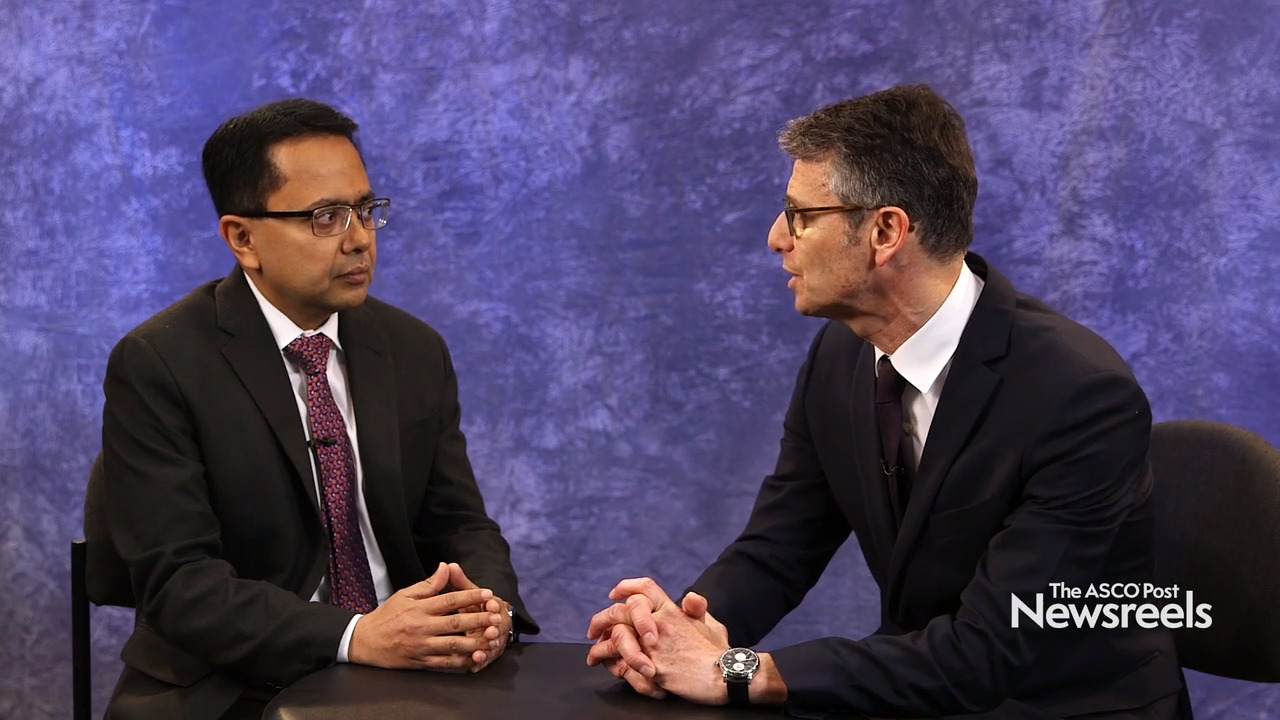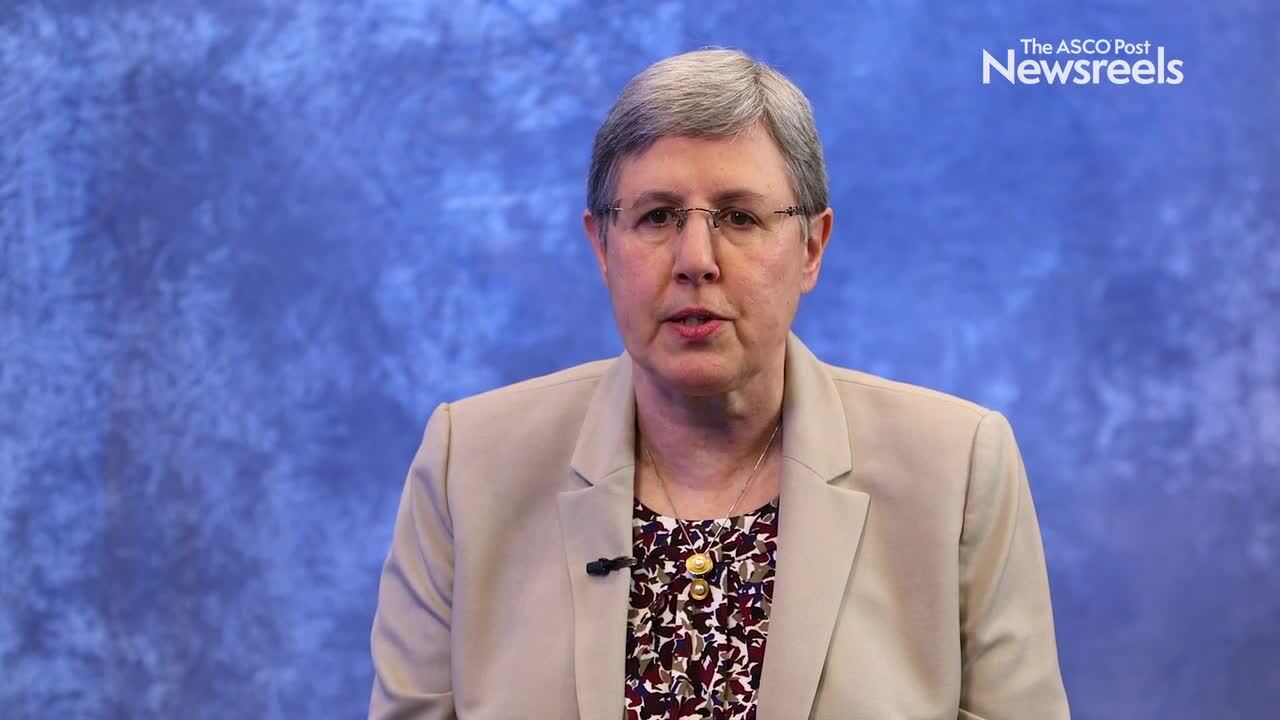Leonard J. Appleman, MD, PhD, on Metastatic Renal Cell Carcinoma: Pazopanib vs Placebo After Metastasectomy
2019 ASCO Annual Meeting
Leonard J. Appleman, MD, PhD, of UPMC Hillman Cancer Center, discusses phase III trial findings that showed a trend toward worse survival with pazopanib in patients with metastatic kidney cancer who exhibited no evidence of disease following metastasectomy (Abstract 4502).
Neeraj Agarwal, MD, of the Huntsman Cancer Institute, and Arnaud Méjean, MD, PhD, of the Hôpital Européen Georges-Pompidou, Paris Descartes University, discuss an update to the CARMENA trial with new phase III study results on the benefit of cytoreductive nephrectomy followed by sunitinib vs sunitinib alone in metastatic renal cell carcinoma (Abstract 4508).
Richard Pazdur, MD, Director of the U.S. Food and Drug Administration (FDA) Oncology Center of Excellence and Acting Director of the Office of Hematology and Oncology Products in the FDA’s Center for Drug Evaluation and Research, discusses the launch of Project Facilitate, a new pilot program to assist oncology health-care professionals in requesting access to unapproved therapies for patients with cancer.
Contact Information for Project Facilitate
Health-Care Professionals
Call: 1-240-402-0004
Patients and Their Families
Call: 301-796-3400
Amy J. Davidoff, PhD, of Yale University School of Public Health, discusses study findings on how expanding access to Medicaid through the Affordable Care Act (ACA) reduced racial disparities among patients with advanced cancer. Before the ACA was implemented in 2014, black patients with cancer were less likely than white patients to receive timely treatment, but in states that did not adopt Medicaid expansion, racial disparities persist (Abstract LBA1).
Michael J. Morris, MD, of Memorial Sloan Kettering Cancer Center, discusses the phase III findings from the Alliance A031201 trial, which showed that adding abiraterone acetate to enzalutamide did not improve survival in men with metastatic castration-resistant prostate cancer (Abstract 5008).
Matt D. Galsky, MD, of The Tisch Cancer Institute at Icahn School of Medicine at Mount Sinai, discusses phase II study findings that show switch maintenance with pembrolizumab significantly improves progression-free survival in the metastatic setting (Abstract 4504).





